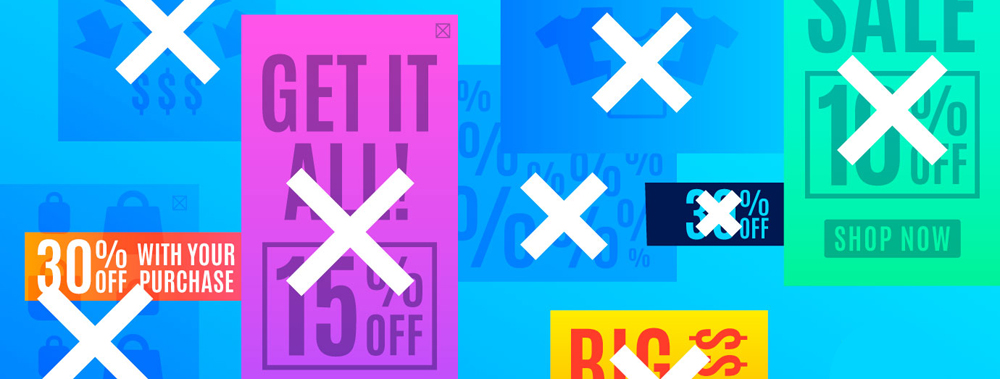Surfing the web these days is more like trying to navigate a crowded bazaar than gliding through refreshing vistas of good content. Everywhere you turn there is advertising in your face; banner ads, moving ads, talking ads, all seeking to steal your attention from whatever it is you’re seeking.
Most of us stoically put up with them, mentally tuning them out and ignoring them as best one can, because we know that advertising drives the net. Without those ads footing the bill, the content buried among them wouldn’t be there.
Yet as time goes on, the constant push for sales degrades content. Articles get shorter and with less information, subjects become more superficial, headlines get more outrageous, and advertising commands more and more space, time and creativity. It’s enough to make anyone wish for a simple way to surf in peace.
There are other reasons why you might wish for fewer ads. Ads take your time, precious bandwidth and machine resources to download. Moreover, they are all aimed at you and directed by your preferences. Machines instantly decide in an auction which ones they will show you during the time it takes to load the page. And any clicks you give them will be carefully noted, so that the next time you surf, you’re liable to see even more of the same.
All that data is funneled into immense databases mostly owned by companies you’ve never heard of. They buy and sell that data to each other in hopes of getting more of your attention, time, and money. You don’t know who knows what, what they do with the information, how valuable it is, or how it may be used against you. To get that data is the economic reason Facebook and Google exist with their “free” services, following you wherever you go, and Apple too has a tremendous stake in the game. To them, your data is their income.
And it’s biased. Not only do different people see different ads, even the prices and offers you are presented can vary depending on what make and model of computer you use, where you live, and a host of other factors they may know about you. To target you, Facebook, for example, collects 98 pieces of information on you, including such things as coupon use, the age of your car, whether you buy a lot of booze, what charities you give to, and on and on. Google even allowed advertisers to target neo-Nazis and anti-Semites. And, by the way, there’s nothing you can do about any of it. Except block them from getting more information.
Faced with such threats to privacy and security, it’s no wonder many people rely on ad blockers. These programs examine the content of webpages as they load, where the various elements come from and where data generated by your choices goes. They can consult lists of blacklisted items and also block ads according to rules. At the highest settings, if the content is not from the same domain address as the webpage itself, it’s refused.
Many give users the option of turning off precisely whichever ads and other online trackers for each site. This doesn’t stop all ads – in-house advertising, including “sponsored content“, originating from the same servers as the webpage itself are still unaffected. Here’s a list of the current best blockers out there.
However, ad-blockers also can eliminate actual useful material as well, like photos and videos from other sources that are embedded in the page. Yet they work well enough to be relied upon by many people, raising the righteous indignation of frustrated online advertisers and publishers across the web. Some marketers even consider their use to be a form of online piracy.
Many sites have responded by cutting off all access to content to users who employ ad-blockers as soon as they detect one in operation. Even Wired tried this for awhile, but apparently gave up. Some sites silently look for ad blockers and switch ads to something non-triggering or report the block to back-end servers so it doesn’t count against them.
Other websites beg users to turn them off, even offering incentives like lower prices for paid subscriptions. The “arms race” between users and providers over ad-blockers continues, constantly ramping up, much like that between users and spammers.
Not enough people use blockers enough to endanger the big tech corporations, but the threat might actually help to keep ads in line. But there’s another reason to use them. Most webpages depend upon Javascript built into them to display items. Researchers have found that malicious Javascript could be injected into browsers by infected ads. This could turn the computer into a slave of a botnet, or a covert Bitcoin miner.
Of course, blockers shouldn’t be used on all pages. Some sites you may want to allow tracking. So they should be turned off on websites that provide vital services upon which you depend – such as government, banking, and medical sites, not to mention your ISP. As these sites typically don’t use much (or any) outside advertising anyway, it’s fairly safe. And they probably shouldn’t be used either on websites where you regularly shop, like Amazon or Netflix, where having the merchant trying to guess your needs and recording your browsing activities could be helpful.

